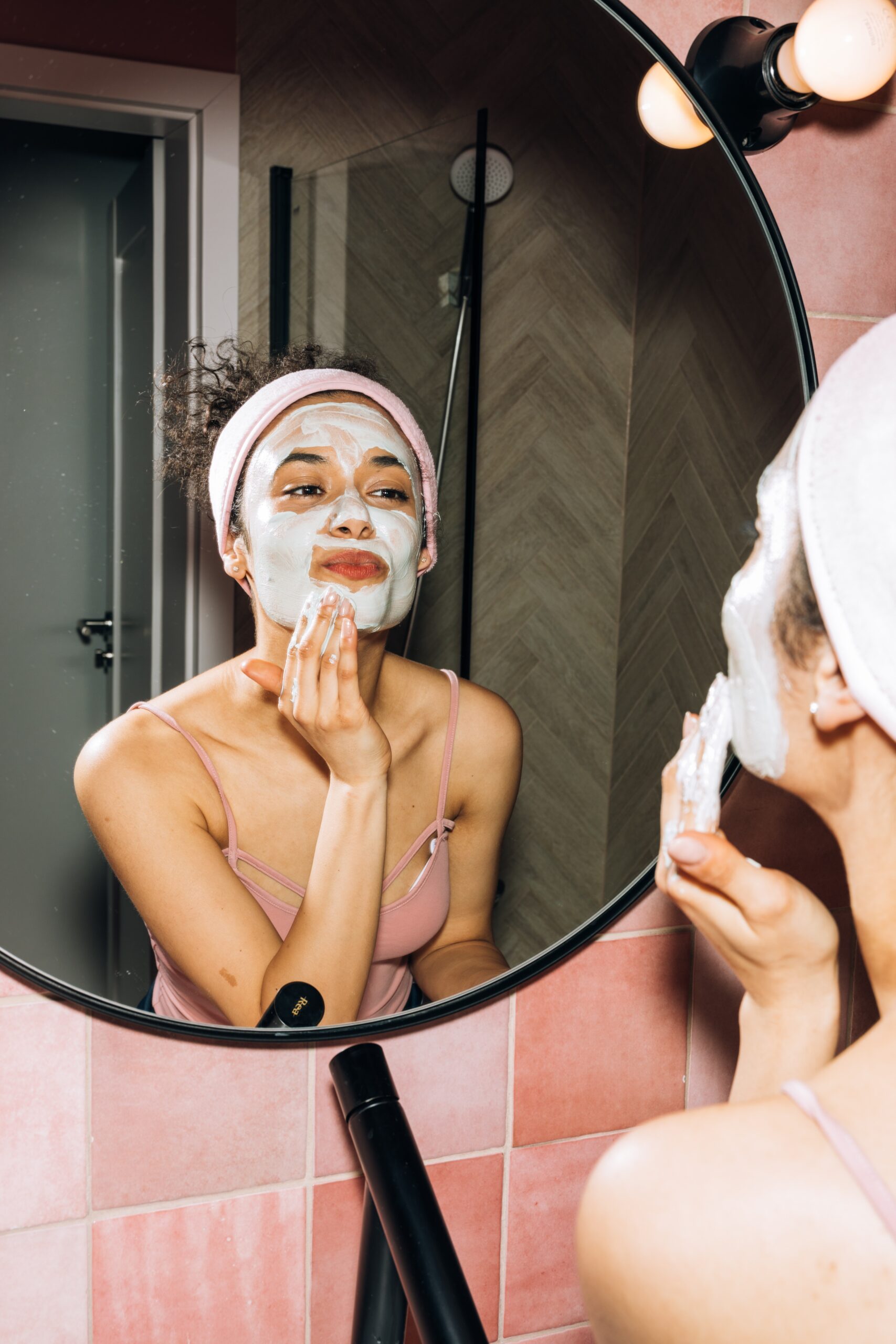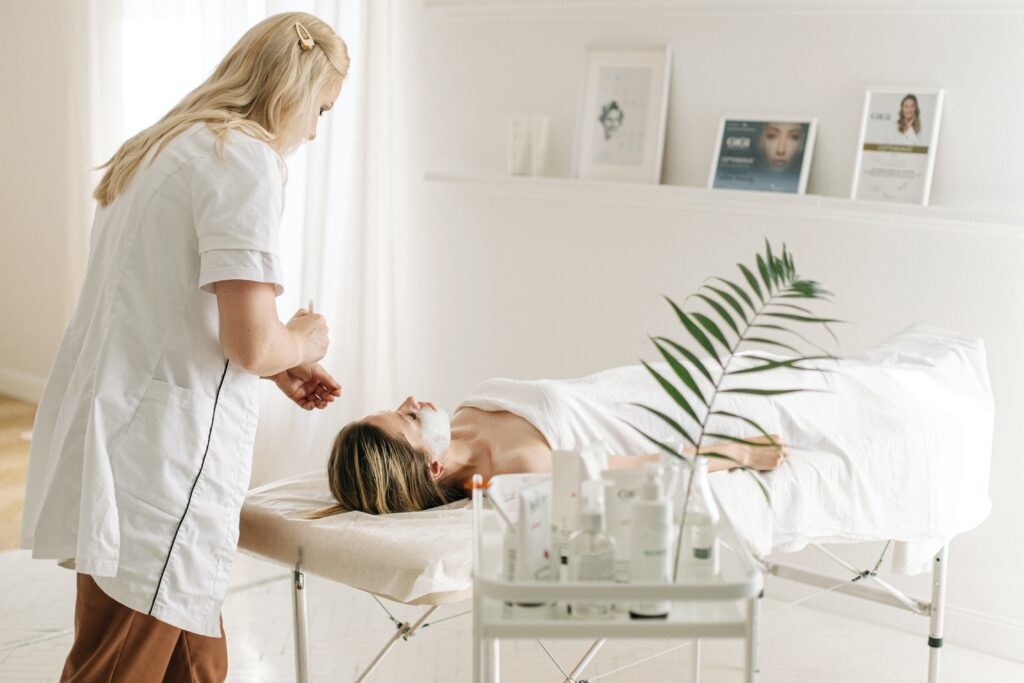menu

You Can Overcome Acne During Eating Disorder Recovery
category 4
category 3
category 2
category 1
blog
categories
book your 1:1 call
connect with me
I utilize my own shared recovery experience to provide compassionate recovery care and empower clients to a life of health and wellness.
a Certified Eating Disorder Recovery Coach based in Dallas, Texas.
i'm merrit elizabeth
Looking for information on bulimia specifically?
visit the conquering bulimia blog
Battling acne during eating disorder recovery is common. I have been there.
Malnutrition from eating disorders or disordered eating habits means a lack of nutrients, vitamins, minerals, and electrolytes coming into the body and the depletion of previous stores. A gut microbiome imbalance allows the overgrowth of certain “bad” bacteria while eliminating the good bacteria. The gut communicates with the brain, liver, kidneys, and thyroid. In a series of cascading hormonal events, the skin shows the end results—dry, itchy, acne-prone skin. This is why people battle acne during eating disorder recovery.
During recovery, the return of needed nutrients and normal eating behaviors also brings the return of normal levels of several hormones. Your skin can reflect the change and may cause temporary acne. Don’t stop feeding your body the good stuff! Healthy skin requires nutrients from every food group. What you see now is temporary. What you are building in recovery is for a lifetime.
Who can help me treat acne and maintain my recovery?
Acne specialists including dermatologists and aestheticians will provide the safest most reliable source of science-backed information on treating acne. A customized plan based on your unique present-day health is the key to treating acne during eating disorder recovery.

Inform your dermatology provider upfront that you do not want to hear any advice on diet. Your recovery status is unique and you should not be eliminating or demonizing any foods!
An aesthetician specializing in acne can direct you to an affordable skincare regimen that may include gentle cleansers, exfoliants to remove dry skin, antioxidant serums to protect and fade hyperpigmentation, antibacterial products like benzoyl peroxide to kill the P.acne bacteria, retinol or retinoid to speed up skin cell turnover, moisturizer to maintain the skin barrier, and sunscreen to stop DNA damage, hyperpigmentation, and prevent scarring. Regular assessments help your provider to make treatment changes along the way.
Dermatologists may discuss certain medications to help with acne which may include oral hormones along with others. Be honest with your dermatologist about your eating disorder recovery status and always consult with your eating disorder medical provider. Regular periods and consistent normal vital signs are the top priorities for recovery and beyond. Both doctors must be aware of all medications to avoid dangerous interactions or unwanted side effects.
Other easy ways you can treat acne and maintain recovery at home:
Regular balanced meals or prescribed meal plans and a daily multivitamin to ensure your body has all the nutrients, vitamins, and minerals it needs!
Stay hydrated by drinking lots of water throughout the day. This is easy maintenance for dry skin.
Green tea contains high levels of polyphenols which have antioxidant, anti-inflammatory, and antibiotic properties. It also contains EGCG which can decrease oil secretions in the skin. It’s the sebum/oil that “glues” dry skin flakes together causing the blocked pores. Try substituting green tea for your coffee.
A daily clean pillow case is an easy way to ensure your face isn’t resting on sweat, dirt, or the previous night’s skincare. Silk is great, but cleanliness is the priority. 1 pillow = 2 nights if you flip it!
A full-face ice mask can be purchased from Amazon for cheap and works by decreasing the inflammation of sore red pimples. Use for about 10 minutes prior to skincare.
Prioritize sleep and rest in order to allow your acne, gut, and brain to heal.
Try your best to focus on progress, not perfection. Positive energy and negative energy affect every system in your body.
Avoid TikTok trends and skincare influencers who are not ED-informed acne specialists!
Your worth is so much more than your weight or your skin.
On a personal note, I truly understand the frustration of battling acne during eating disorder recovery. I have been there. With so many things to consider, even stress reduction tips can cause anxiety on certain days. It’s hard to “trust the process.” I get it. Please know that on the really tough days, rest is your best medicine.
If you need someone to listen, I am always here. Reach out today.

Merrit Elizabeth Stahle is an Eating Disorder Recovery Coach certified by The Carolyn Costin Institute. She holds a master’s degree in Health Promotion Management and a certification in Applied Neuroscience. She is fully recovered from an eating disorder and she has years of experience working with women with eating disorders.
Leave a Reply Cancel reply
next post
previous post
browse categories
read or leave a comment +